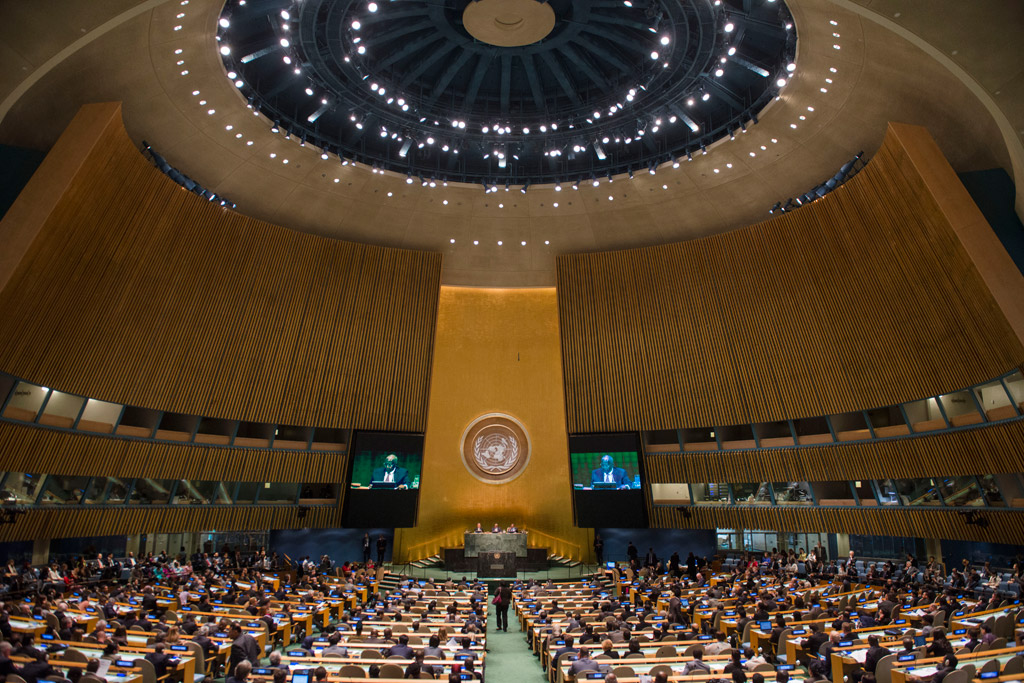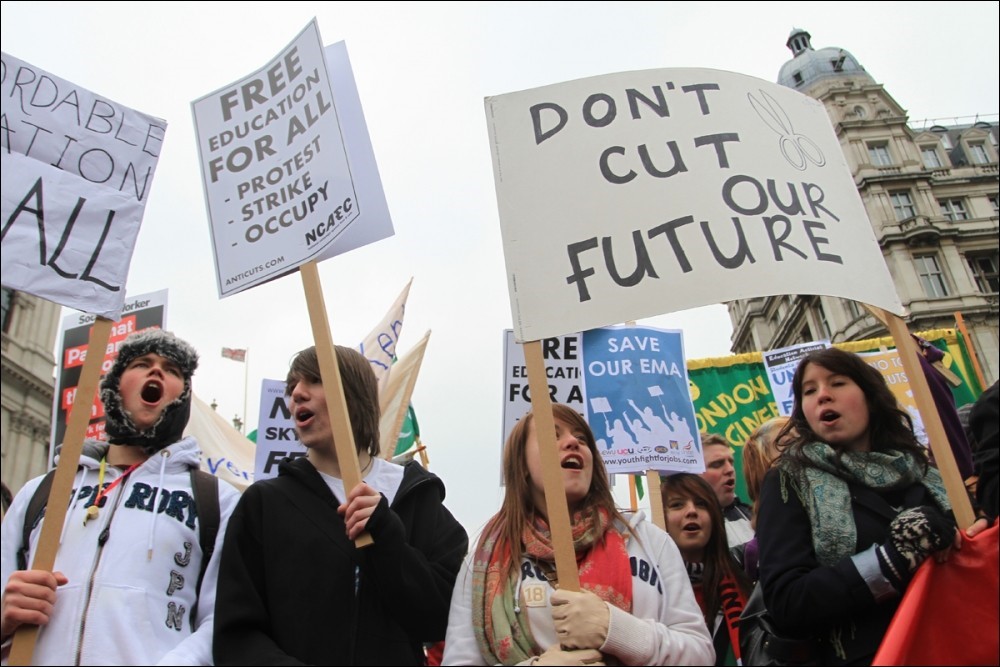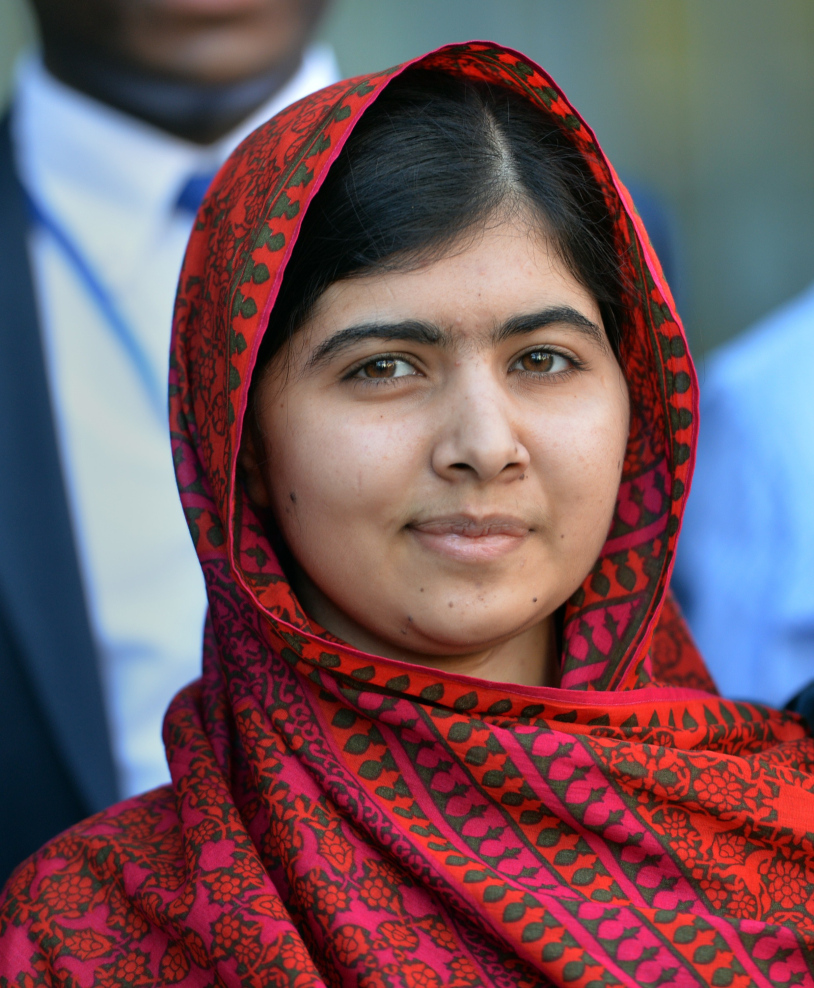2015 was a challenging time for young people across the globe. For many, it was a year when they had to leave their homes due to war and economic despair. For many others, it was a period of uncertain job opportunities after graduation from schools and universities. However, 2015 was also an inspiring year during which some global social and political trends shifted to give greater recognition to the role of youth in determining the planet’s future. To remain in a celebratory spirit, we have compiled some of the most important optimistic news with regard to youth which have occurred in 2015, hoping that 2016 will be much more positive for all of us.

The UN Adopted an Historic Resolution on Youth, Peace, and Security
The United Nations Security Council adopted an historic resolution on youth, peace, and security in December 2015, which focuses entirely on the role of young men and women in building peace and countering violent extremism.
The first ever resolution on youth from the Security Council calls for the greater participation of young people in preventing and resolving conflicts and highlights the need to protect young people in war zones. It also calls on UN member states to increase their political and financial support, taking into account youth and young people’s participation in peace efforts.
Adopted at a time when an estimated 600 million young people live in fragile and conflict-affected settings, the resolution is seen by many as a major breakthrough in the UN’s recognition of youth as a positive force for good and against the rise of radicalism and violent extremism, especially among young women and men around the globe.

Youth Employment in the EU on the Way to Recovery
The long-running unemployment crisis, which hit the European Union as a result of the global financial disaster of 2008, is slowly diminishing in intensity.
Extremely high rates of youth unemployment over the last seven years have drastically increased poverty, inequality, and social exclusion among many young people and their families across the EU countries. As of July 2014, the EU youth unemployment rate was still at a high of 22 percent.
However, the newest statistics show that employment rates in the Eurozone are improving: 23 member states have seen unemployment decrease in 2015.
Greece and Spain have the highest unemployment rates in the EU, at 25 percent and 21.6 percent, respectively. However, Spain’s current unemployment rate is better than last year’s figures. In 2015, Germany, the Czech Republic, and Malta boasted the lowest unemployment rates at 4.5, 4.8 and 5.1 percent.
A further decrease in youth unemployment rates is expected in coming years.

Estonia and Scotland Lowered the Voting Age to 16
In June 2015, the Estonian Parliament approved a constitutional change to allow 16- and 17-year olds to vote in local elections. In Estonia, lowering the voting age is seen as a way to engage young people in politics at the level closest to them, and to ensure that an aging national population doesn’t have a disproportionate influence on decisions affecting young people. Estonian civil society organizations have long pushed for the change, which will allow an estimated 24.000 16-and 17-year olds to vote in the 2017 local elections.
During the same month, the Scottish Parliament voted unanimously to lower the voting age to 16 for local and national elections. The voting age was first lowered to 16 for the 2014 independence referendum, resulting in a huge turnout of 75 percent for this age group.
When the right to vote was first established, the legal voting age was 21 in most European countries, but the electoral age was later lowered to the age of 18.

The Youngest Nobel Prize Winner Turned Eighteen
Malala Yousafzai, one of the world’s most inspiring human rights activists and the youngest winner of the Nobel Peace Prize, has turned eighteen.
Malala was born on 12th July 1997 in Pakistan. As a child, she became an advocate for girls’ education, which is the reason why Taliban forces issued a death threat against her. When she was fifteen, a gunman shot her as she was traveling home from school. She survived, and has continued to speak out on the importance of education. Malala has become a global symbol of the fight for education for all and an inspiration for many young people around the planet.
In 2015, Malala launched a campaign to seed not just progress on education, but to make her generation #The Last to see any child denied education. During the same period, she also issued an open letter to world leaders calling on them to make 2015 the year in which they, and the rest of the world, “commit to seeing the last child out of school, the last child forced into slavery, and the last child made homeless because of the danger of climate change.”
If you are curious to find out more about this brave young woman, check out a movie titled He Named Me Malala that captures her life and achievements, released also in 2015.

Youth Mobility in the EU Became Less Complicated
Non-EU students and researchers who wish to move within the EU will be able to do so by simply notifying the member state to which they are moving instead of having to submit a new visa application, which was the case until now.
This is a result of an agreement reached by the European Parliament and the EU’s Commission on the Visa Directive establishing rules that aim to make it more attractive for non-EU students, researchers and interns to enter the EU. The volunteers and interns of the European Voluntary Service (EVS) are mandatory groups included in the Directive.
The decision, announced in November 2015, has to be approved by the Council of Ministers of the EU.
Support us!
All your donations will be used to pay the magazine’s journalists and to support the ongoing costs of maintaining the site.
Share this post
Interested in co-operating with us?
We are open to co-operation from writers and businesses alike. You can reach us on our email at cooperations@youthtimemag.com/magazine@youthtimemag.com and we will get back to you as quick as we can.









